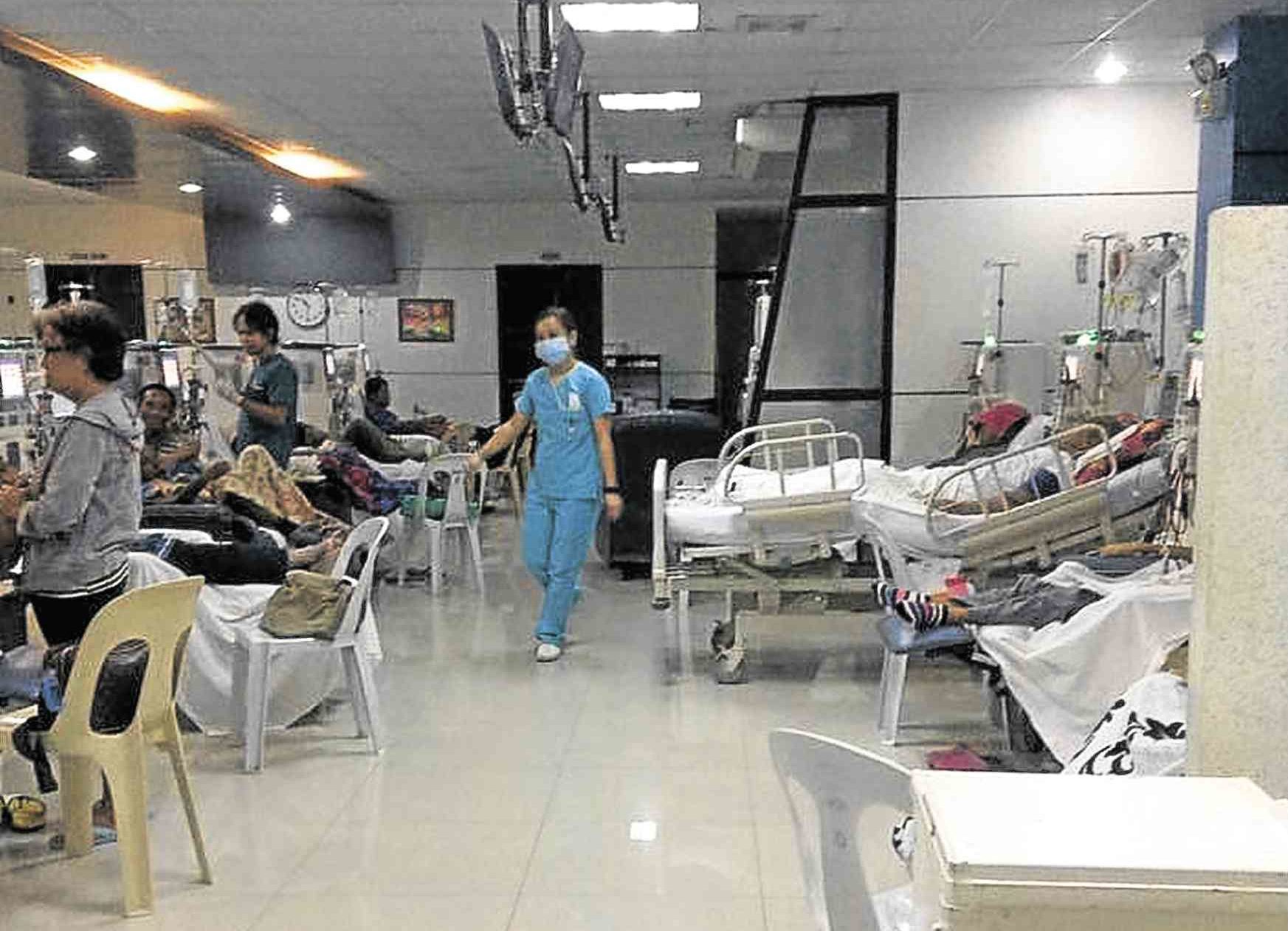Doctors fear rise in organ trafficking as demand spikes
DAVAO CITY — Trafficking in human organs, especially kidneys, could increase as a result of a spike in the number of people with chronic renal diseases, according to a government hospital official here.
“Something must be wrong with our eating habits, the food we eat, the drugs that we take,” said Dr. Ma. Teresa Bad-ang, head of human advocate and retrieval effort of Organ Procurement Organization (OPO) at Southern Philippines Medical Center (SPMC) here.
Renal diseases, she said, were among the top 10 killers in the country today.
At SPMC alone, the number of people with renal diseases had gone up to 32,000 over 10 years from just 6,000 in 2007, Bad-ang said.
This made Davao City among the top three cities in the country with the highest number of people undergoing dialysis, she said.
Article continues after this advertisement200 dialysis sessions
Every day, Bad-ang said, SPMC conducts an average of 200 dialysis sessions through its 50 hemodialysis machines.
Article continues after this advertisementShe said the spike in number of patients with serious renal diseases also saw an increase in the number of people seeking kidney transplants.
“It is a sad reality that some resort to the black market to avail themselves of such treatment,” Bad-ang said.
Trafficked kidneys cost five times more than what donors were paid for.
In 2008, the increasing demand for kidneys pushed some poor residents of several Mindanao areas to sell their organs to traffickers.
In Mlang, North Cotabato, for example, at least 10 residents admitted to selling kidneys to rich patients.
P200,000 for kidney
Local officials, then headed by Mayor Lito Piñol, had asked the Department of Health and the National Bureau of Investigation to stop the practice after meeting with the donors, who said they were paid P200,000 plus 10-year PhilHealth coverage for their kidneys.
Mlang health officer, Dr. Glecerio Sotea Jr., said the kidneys sold by the residents mainly went to Israelis and Arabs, who underwent operations at a Davao City private hospital.
Just nine months after the discovery of the Mlang case, Dr. Benita Padilla of the National Kidney and Transplant Institute was quoted in a news report as saying some Filipinos had started selling their kidneys online.
“If you will check the websites, there are numerous kidney-for-sale advertisements. This form of online advertising should be prohibited,” Padilla was quoted as saying.
Training
The areas identified as sources of trafficked kidneys included the Mindanao regions of Caraga, Zamboanga Peninsula and Davao. North Cotabato was the only province included on the list.
Bad-ang said SPMC had been very active in preventing organ trafficking by strengthening its organ procurement organization.
She said the organization aimed to increase awareness on the importance of donating organs to patients needing them.
On Wednesday, for example, a total of 40 health workers started a three-day course called Transplant Procurement Management.
“It’s about how to get (the needed organs),” Bad-ang said.
She said for health workers, procurement simply meant finding a donor and convincing him or her to donate a kidney.
“For example, for a dying patient, we can convince him or the family to just donate the organs,” Bad-ang said.
“The only question is how the watchers for example feel or what the dying person would say. But if you die, do you want to donate your organs or leave them to worms to feed on,” Bad-ang said. —Joselle Badilla
